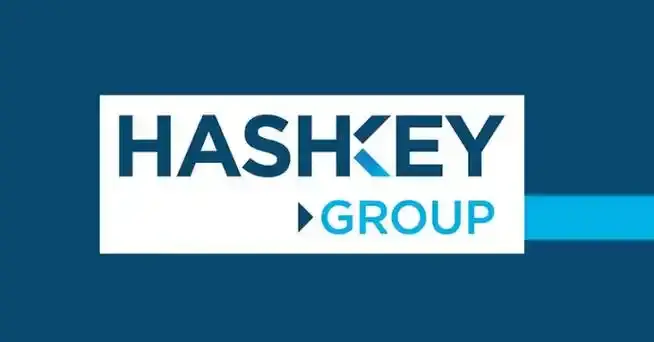Daily Report | HashKey Exchange announces approval for Hong Kong's first new virtual asset license and launches over-the-counter trading services; Web3 creator platform Nifty announces shutdown
Organizer: Grapefruit, ChainCatcher
"What important events have occurred in the past 24 hours?"
1. Digital asset trading platform OSL has been approved by the Hong Kong Securities and Futures Commission to upgrade its license, allowing it to provide cryptocurrency trading services to retail investors.
According to ChainCatcher, OSL Digital Securities Limited, a wholly-owned subsidiary of BC Technology Group, officially announced that it has received approval from the Hong Kong Securities and Futures Commission to upgrade its existing license. Starting today, the OSL Digital Securities platform will officially offer digital asset trading services for mainstream cryptocurrencies such as Bitcoin and Ethereum to retail investors.
OSL is the world's first licensed and insured digital asset platform approved by the Hong Kong Securities and Futures Commission, established in 2018. It provides market services (brokerage, exchange, and custody) and Software as a Service (SaaS) technology solutions, offering digital asset trading services and high liquidity funding pools for institutional, professional, and retail investors. (Source link)
2. HashKey Exchange announces approval for Hong Kong's first new virtual asset license and launches over-the-counter trading services.
According to ChainCatcher, HashKey Exchange announced that it has been approved for Hong Kong's first new virtual asset license and has upgraded its License No. 1 and No. 7 to provide retail services.
HashKey stated that it has partnered with Standard Chartered Bank to offer fiat currency deposit and withdrawal services. Additionally, the company announced the launch of its virtual asset over-the-counter trading business, HashKey Brokerage, which is now officially open for pre-registration. (Source link)
3. Messari: In Q2, Coinbase's non-trading revenue accounted for more than half and may surpass trading revenue for the first time.
According to ChainCatcher, Messari researcher Kunal Goel released a revenue forecast report for Coinbase's second quarter, indicating that non-trading revenue accounted for 50% of Coinbase's revenue in Q2 2023, which may surpass its trading revenue for the first time. Meanwhile, Coinbase's spot trading volume decreased by 36%, and retail trading volume, which accounts for 95% of trading revenue, fell by 14%. (Source link)
4. Web3 creator platform Nifty announces shutdown.
According to ChainCatcher, the Web3 creator platform Nifty announced its closure via a tweet. In a tweet on August 3, Nifty stated that earlier this year, considering its limited resources in a challenging market, it shifted focus to developing a platform for Web3 creators. It has been dedicated to developing new products and seeking funding necessary for continued development. Unfortunately, investment opportunities did not materialize, and the business will gradually cease operations starting today.
Nifty was originally a social platform focused on NFTs and had collaborated with some well-known brands in the entertainment industry to launch NFTs, including a collaboration with Warner Bros. to release NFTs based on "Space Jam" and NFTs featuring "The Matrix" and "Game of Thrones." According to the crypto data platform Rootdata, the platform had raised $10 million in 2021 with support from Mark Cuban and Joe Lubin, with investors including Coinbase Ventures and Dapper Labs. (Source link)
5. Wu Says: The Hong Kong Securities and Futures Commission may soon approve the license upgrade for Hashkey Pro, allowing it to serve retail traders.
According to ChainCatcher, Wu Says Blockchain reports that the Hong Kong Securities and Futures Commission may soon approve the license upgrade for Hashkey Pro, allowing it to start serving retail investors. It is currently uncertain which cryptocurrencies will be offered. Currently, Hashkey Pro only provides trading for BTC, ETH, USDT, and USDC.
Additionally, Hashkey Group COO Livio Weng also made a preview on Twitter. (Source link)
6. Data: Curve founder has sold a total of 59.5 million CRV, raising $23.8 million.
According to ChainCatcher, on-chain analyst Yu Jin monitored that the Curve founder sold a total of 5 million CRV through OTC to Yearn and Stake DAO just two hours ago. So far, he has sold a total of 59.5 million CRV, raising $23.8 million. (Source link)
"What interesting articles are worth reading in the past 24 hours?"
This half-life is the third in Litecoin's history since its launch in 2011. However, the response from the crypto market has been somewhat tepid, with its token LTC even experiencing a decline in the secondary market.
Just days before the halving, Litecoin founder Charlie Lee and his brother announced the joint launch of 500 "Litecoin Halving Silver Commemorative Physical Cards," each made of 50g silver and containing 6.25 LTC, with a temporary price of $1,000, expecting to generate at least $500,000 in revenue. This action has been mocked by users, suggesting that Litecoin seems to be of little use now, and the founders can only rely on selling cards to raise money.
While the founders are selling cards during the halving, users are more concerned about whether the halving can bring back attention to the long-quiet Litecoin and whether it can positively impact its ecological development.
2. "How does crypto queen Katie Haun navigate the darkest moments of cryptocurrency?"
Cryptocurrency may experience cyclical fluctuations, but this downturn is much steeper than investors expected, and the collapse of many leading projects in the cryptocurrency industry has exacerbated this volatility. For Haun, transitioning from a Supreme Court clerk to a significant position in the Department of Justice and then to the top of the VC world, the cryptocurrency industry's Waterloo has posed the first serious setback to her rapidly rising career and carefully cultivated reputation.
3. "A multi-angle analysis of the reasons for ICP's decline: unique technology and a sparse ecosystem"
When it comes to new public chains, Dfinity (ICP) is an unavoidable topic. With nearly $200 million in massive funding, a glamorous team of cryptographers, and unique technology, ICP was once highly sought after; however, since its high-profile launch in 2021, ICP has plummeted from being a hot "king project" to a despised "doomed project," leaving many people sighing. At the same time, its sparse ecosystem has made ICP feel ashamed in front of competitors like Solana.
Looking back at history and reflecting on the past, what factors have influenced the development of the ICP ecosystem? Can unique technology support ecological development? Can the "doomed project" be revived? This article will discuss ICP's technical characteristics, the flaws in its NNS governance system, and the lack of a unified token standard, briefly analyzing the dilemmas it faced during its development, to clearly present the reasons for the decline of this "king project."












